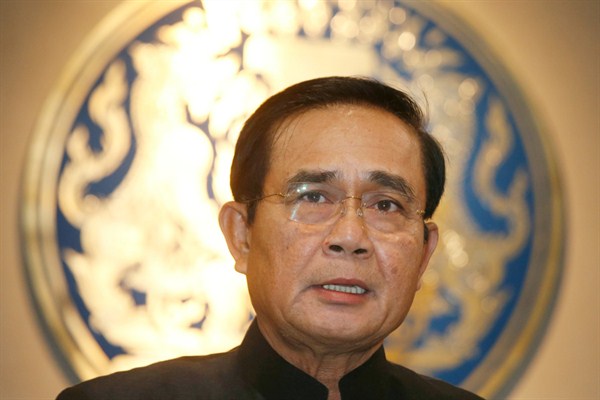In July, according to spokespeople for Thailand’s government, Prime Minister Prayuth Chan-ocha will come to Washington for a White House visit. It promises to be a substantial diplomatic and reputational boost for both Prayuth, who led the coup in May 2014 that deposed Thailand’s most recent elected government, and the junta running Thailand, which remains a U.S. treaty ally.
Former President Barack Obama did not offer Prayuth a White House invitation, although Obama did meet with him as part of a summit in California of Southeast Asian leaders in February 2016. The Thai junta repeatedly expressed anger at the Obama administration for the steps it took to condemn the military’s intervention in politics in 2014. The Obama administration cut back the size of the Cobra Gold joint military exercises—the U.S. military’s biggest multilateral exercises in Southeast Asia—and suspended training for Thai soldiers and many other bilateral U.S.-Thai exchanges, among other measures. The Obama administration was also publicly critical of the deteriorating state of democracy in Thailand. In response, junta leaders publicly welcomed closer defense and economic ties with China, partly as a means of demonstrating that Bangkok would not be dependent on Washington.
Prayuth is unlikely to hear any such criticisms at the White House next month. The Trump administration has already made clear that it does not plan to raise human rights concerns in public with authoritarian leaders. Instead, talks between Prayuth and Trump will reportedly touch on a range of issues, including “trade, investment, commerce and security.” Joint efforts to combat the self-proclaimed Islamic State in Southeast Asia will likely be brought up. So too will measures to improve bilateral trade, since Thailand is on a list of countries compiled by the Trump administration as having large trade surpluses with the United States. But with the restoration of democracy in Thailand off the list, expect Thai officials to portray next month’s visit as a renormalization of ties between Washington and Bangkok.

